* Invited and Regular Papers will be published in various Indexed Journals (ISI, SCOPUS, EBSCO, DBLP, ACM, IET/INSPEC, Proquest, Copernicus etc...) based on quality and reviewers' recommendations or in our Books in Springer Verlag. Click here






* Authors will be informed about the title of the Journal before
their registration.
* Contact us by email:
support@inase.org Registration fees
Publication Ethics and Malpractice Statement
Deadlines
(Previous Conference: PMAMCM 2016, Corfu Island, Greece, July 14-17, 2016)
PLENARY SPEAKERS:
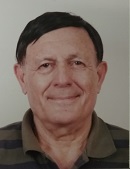
Prof. Demetrios Kazakos, Professor of Mathematics, Texas Southern University, Houston, Texas, USA, e-mail: kazakosd@tsu.edu
Co-author: Nancy Griesinger
Title: "The Design of Resilient and Adaptive Communication Networks with Intrusion Detection, Using Statistical and Artifical Intelligence Methods"
Abstract: One important issue is addressed in this paper. It is the security of Communication and Computer Networks, in the context of software based "Cyber attacks". We discuss the use of fastest change detection methods to detect rapid changes of data resulting from Cyberattacks, and the use of Learning Artificial Intelligence tools and methodologies for the same goal. A major part of our work is to address, in a theoretical and systematic context, the issue of Intrusion Detection. Intrusion Detection Methods and Systems (IDMS) exist presently in commercially available systems, and such protection is vital for the normal operation of computer and communication networks, including military, federal, financial, enterprise and industrial networks. However, the existing commercially available network intrusion detection systems have a number of severe shortcomings. More importantly, the existing systems suffer from a tremendous false alarm rate (FAR), are not structured for scalability to an arbitrary number of nodes, they cannot operate well in large scale, very high speed networks, and they cannot detect new, unknown threats. Statistical Detection Theory , Pattern Recognition, Data Clustering and Artificial Intelligence Algorithms are used.
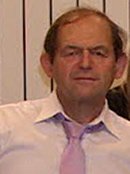
Prof. Michael Gr. Voskoglou, Professor Emeritus of Mathematical Sciences, School of Technological Applications, Graduate Technological Educational Institute of Western Greece, GREECE, e-mail: voskoglou@teiwest.gr
Title: "Use of Fuzzy Numbers for Assessing Human Skills"
Abstract: There used to be a tradition in science and engineering of turning to probability theory when one is faced with a problem in which uncertainty plays a significant role. This was justified when there were no alternative tools for dealing with the uncertainty. Today this is no longer the case. Fuzzy logic (FL), based on the fuzzy sets theory (Zadeh, 1965), provides a rich and meaningful addition to standard logic. The applications which may be generated from or adapted to FL are wide-ranging and provide the opportunity for modelling under conditions which are imprecisely defined, despite the concerns of classical logicians (Klir & Folger, 1988).
In particular, due to its property to characterize with multiple values the frequently appearing in our day to day life ambiguous situations, FL provides a variety of tools for assessment under fuzzy conditions. Such tools were used by the speaker several times in the past including the measurement of a system's uncertainty (Voskoglou, 2011, etc.), the Centre of Gravity (COG) defuzzification technique (Voskoglou, 2012, etc.) and its equivalent variations (Voskoglou, 2015, Subbotin & Voskoglou, 2016), etc.
Fuzzy Numbers (FNs) play an important role in fuzzy mathematics analogous to the role played by the ordinary numbers in crisp mathematics. In this lecture we shall apply a combination of the Triangular (TFNs) and Trapezoidal (TpFNs) FNs (Kauffman & Gupta, 1991) with the COG technique for assessing human skills. Our examples involve student and basket-ball player assessment. Our new fuzzy method is validated by comparing its outcomes with the corresponding outcomes of two traditional assessment methods of the bi-valued logic, the calculation of the mean values and of the Grade Point Average (GPA) index (Swinburne.edu.au, 2014).
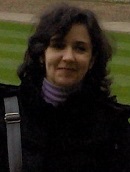
Prof. Adela Ionescu, Department of Applied Mathematics, University of Craiova, Romania, e-mail: adelajaneta@yahoo.com
Title: "On a Linearization Method for the Dynamical Systems Associated to Excitable Media Models"
Abstract: The mixing flow methods and techniques recently developed a significant relation between turbulence and chaos, in an area with far from complete solving problems: the flow kinematics. In the present paper there are presented recent results concerning the behavior of the mixing flow dynamical system. Both computational and analytical standpoint are taken into account. From computational standpoint, the challenge is great, as the simulation parameters involve strong nonlinearities for the models, both in 2D and 3D case. Therefore this dynamical system can be considered in the category of the so-called "far from equilibrium systems", widespread between the models of excitable media. From analytical standpoint, the feedback linearisation of this dynamical system issue special interpretations. This technique contains two fundamental nonlinear controller design techniques: input-output linearization and state-space linearization. The approach is usually referred as input-output linearization or feedback linearization and is based on concepts from nonlinear systems theory. The resulting controller includes the inverse of the dynamic model of the process, providing that such an inverse exists. The results will be used for further analysis of 3D mixing flow dynamical system.

Prof. Benabdellah Yagoubi, Department of Electrical Engineering University of Mostaganem, Algeria, e-mail: yagoubibenabdellah@yahoo.com
Title: "The Inverse of the Belonging Individual Probability and the Discrete Wavelet as a Hybrid Technique for Anomalous Detection and Identification"
Abstract: Anomalous detection as well as their identification is a vital domain in control that has been approached by many researchers using various methods such as stochastic techniques, neural networks based-method, and so on... The anomalous can be anything that may deviate from its normal behavior; a fault in machine, a sign of a disease such as a tumor, a heart problem and so on. However, most of the processes representing a normal real behavior are random in practice and thus the peaks representing eventual anomalous may be smeared in the normal process and hence their detection and identification become a difficult task. Various techniques for anomalous detection and diagnosis are being used in many engineering applications. Despite the good results provided by these techniques, there is, however, still more work to do to improve the anomalous detection and identification. We will discuss, therefore in this speech, a hybrid technique based on the inverse of the belonging individual probability (IBIP) and the discrete wavelet (DWT) for anomalous detection and identification. We will try to show, furthermore, in this lecture that this hybrid technique has a great potential to enhance detection and identification of anomalous.
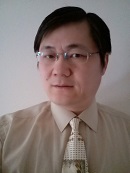
Prof. Adam Ding, Department of Mathematics, Northeastern University, Boston, USA, e-mail: adamding@gmail.com
Title: "Robust Copula Dependence Measure and Equitability"
Abstract: Dependence measure plays an important role in filter-based feature selection. To correctly identify important features with complex relationship in large data sets, we like the measure to be equitable (Reshef et al. Science, 2011): treating all types of functional relationships, linear and nonlinear, equally. We provides a theoretical treatment of equitability, including the self-equitability definition (Kinney and Atwal, PNAS 2014) and a new robust-equitablity definition. The robust copula dependence (RCD) measure based on $L_1$-distance of copula density is shown to be equitable under all equitability definitions. We provide theoretical justification that RCD can be fundamentally easier to estimate than mutual information (MI), the recommended self-equitable measure in Kinney and Atwal. Numerical examples, on synthetic data sets and real data sets illustrate the effect of equitability in feature ranking and selection. Particuarly, selection based on RCD can be more robust to varying sample size than selection through MI and other measures.
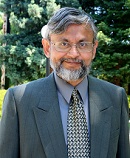
Prof. Bijoy Kumar Ghosh, Dick and Martha Brooks Regent Professor of Mathematics and Statistics, Director, Center for Bio Cybernetics and Intelligent Systems, Texas Tech University, Lubbock, USA, e-mail: bijoy.ghosh@ttu.edu
Title: "Iterative Learning Control Problems from Rehabilitation Engineering"
Abstract: The purpose of this talk is to introduce Iterative Learning Control (ILC) Problems and show how these problems can be applied to patients with movement disorders, perhaps resulting from stroke. Stroke affects motor control and typically the command signals from the brain is affected. As a result the affected person is not able to move their arm along a desired trajectory. To remedy this impairment, electrical stimulus is directly applied to the hand muscles to augment the control signals from the brain. In this talk, we show how the additional control stimulus can be learnt iteratively, based on error between the desired and actual trajectories of the motion. A general theory for the ILCs are introduced for Multi Input Multi Output dynamical systems in discrete time. Convergence of the learning scheme has been discussed using Luenberger Observers, Kalman Filters and Parameter Identification based Projection Algorithms.
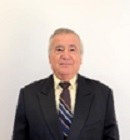
Prof. Peter Stavroulakis, Technical University of Crete, Crete, Greece, e-mail: pete_tsi@yahoo.gr
Title: "Survivability Quantification Of Wireless Critical Network Systems "
Abstract: The problem of survivability of critical networks systems has been around for a long time. Due to the fact that as a concept survivability consists of various components such as reliability, availability, fault tolerance and security and each one of them could be of major importance and satisfy the requirements of a specific problem, as a whole Survivability did not receive the attention it deserves as far as it concerns its quantification. This keynote speech , for the first time, will attempt to deal effectively with the problem of quantification of Survivability by breaking the critical network system under consideration to a seven layer model and then investigate quantitatively which component of survivability applies to each layer in order to establish an overall quantifiable survivability metric.